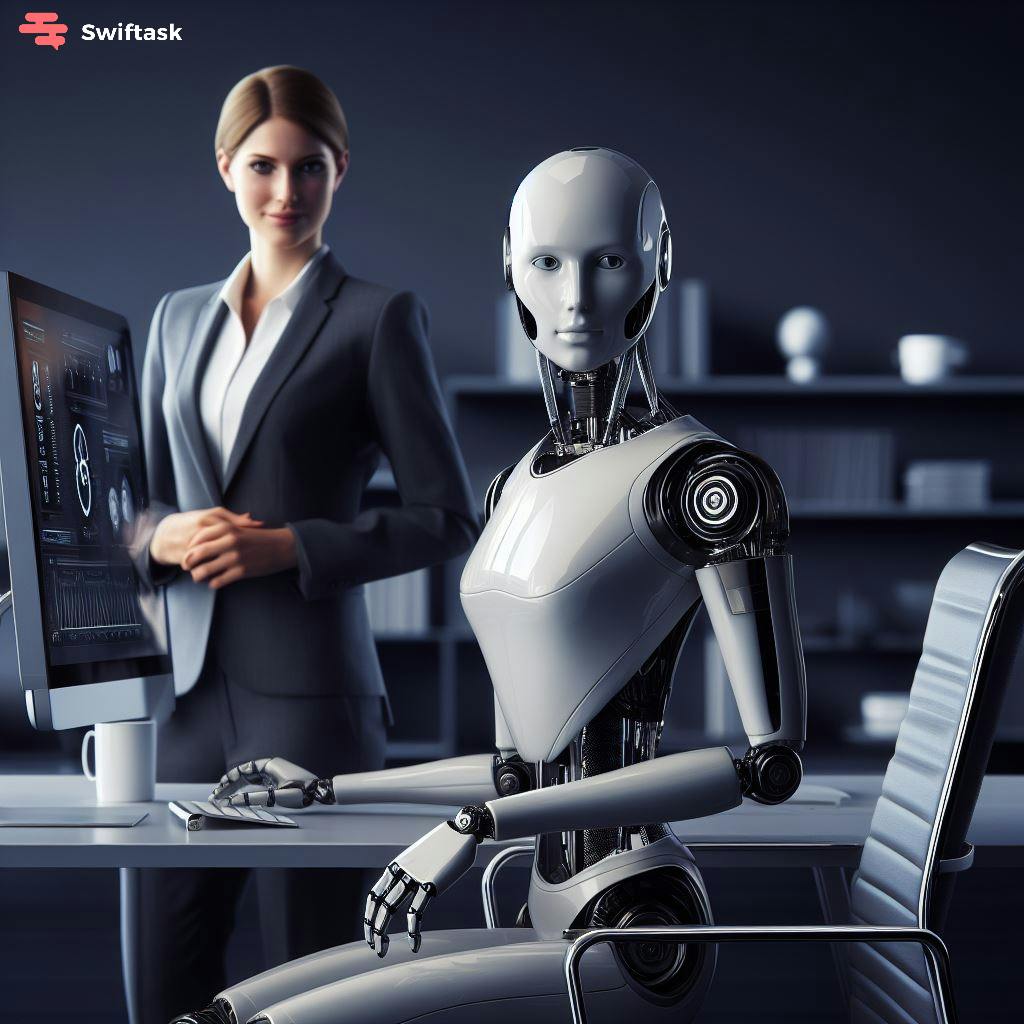Table of contents :
Will AI replace jobs? The impact of AI on jobs
Explore the impact of AI on various job categories, from administrative tasks to coding, customer service, legal, teaching, finance, graphic design, engineering, and human resources. Discover how AI automation is changing industries and the potential benefits it brings, while addressing concerns about job displacement.
Ready to transform your business with AI?
Discover how AI can transform your business and improve your productivity.

The rise of artificial intelligence (AI) has sparked debates about its potential impact on the job market. While it is true that AI has the ability to automate certain tasks traditionally performed by humans, its impact on various job categories can vary. In this article, we will explore how AI is transforming different industries and discuss the potential benefits and concerns associated with AI-powered automation.
The Impact on Job Categories:
1. Administrative: AI tools, such as generative AI, can assist office administrators and assistants in performing various tasks. From basic email correspondence to data trend identification, these tools can help streamline operations and improve productivity. For example, Microsoft 365 Copilot is an AI-powered tool that is expected to greatly enhance the efficiency of office workers once it becomes publically available.
2. Coding: AI systems like ChatGPT have the ability to generate code quickly and accurately, potentially raising concerns among some coders. However, coders who prioritize high-quality code can leverage AI to enhance their workflow and achieve better results.
3. Customer Service: AI-driven chatbots have already made an impact in the customer service industry by providing swift and personalized responses to inquiries. While AI may not fully automate entire contact centers, it can assist in reducing the workload and improving efficiency by translating or summarizing customer inquiries.
4. Legal: AI is expected to undertake many responsibilities traditionally handled by paralegals and legal assistants. Tasks such as document review, contract analysis, legal research, and searches for relevant case law can be automated, allowing legal professionals to focus on higher-value tasks.
5. Teachers: AI presents opportunities to assist teachers in various ways, such as acting as productivity tools, drafting lesson plans, and generating quiz questions. While concerns about AI replacing teachers exist, some argue that AI can be a valuable resource for assisting students with their schoolwork.
6. Finance: AI is playing a significant role in the finance and banking sectors, providing comprehensive financial guidance and transaction monitoring. Financial institutions like Morgan Stanley are already utilizing AI-powered chatbots to provide financial advice.
7. Graphic Designers: Generative AI tools like Adobe Photoshop's Generative Fill and other advancements in the field enable individuals without extensive photo editing experience to easily make photorealistic edits and generate realistic images based on text prompts. AI has the potential to revolutionize the field of graphic design.
8. Engineering: Generative design, powered by AI, streamlines the computer-aided design process, allowing for more efficient exploration of design concepts and innovative solutions. While AI enhances the field of mechanical design, it is unlikely to replace human engineers.
9. Human Resources: AI has a pervasive influence on every facet of HR. AI-powered recruiting tools can help source qualified candidates, review resumes, and automate recruiter tasks. Internal utilization of AI chatbots can also aid employees with accessing benefits and conducting self-service activities, improving overall efficiency within organizations.
The impact of AI on jobs varies across industries and job categories. While some tasks may be automated, AI also presents opportunities for enhanced productivity, efficiency, and innovation. Instead of completely replacing jobs, AI can augment human capabilities, allowing individuals to focus on higher-value tasks that require creativity, critical thinking, and human interaction. As AI continues to advance, it is important for individuals and industries to adapt and embrace the potential benefits that AI-powered automation can bring. Try Swiftask, an AI-powered task management tool and AI Assistant to experience the benefits of AI in your own work processes.
author
Victoire
Published
October 13, 2023
Ready to transform your business with AI?
Discover how AI can transform your business and improve your productivity.